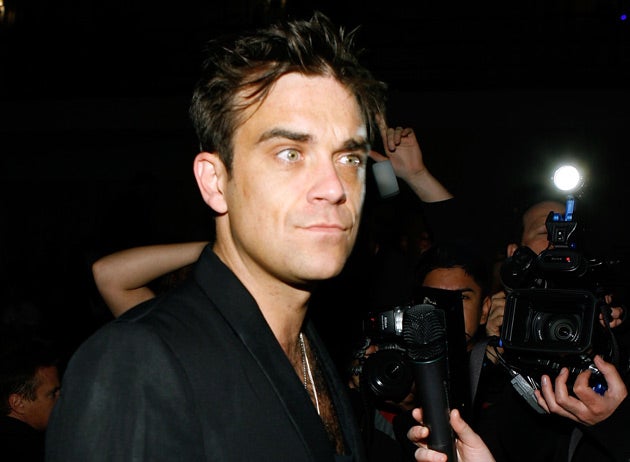It's not a crime to download, say musicians

Your support helps us to tell the story
From reproductive rights to climate change to Big Tech, The Independent is on the ground when the story is developing. Whether it's investigating the financials of Elon Musk's pro-Trump PAC or producing our latest documentary, 'The A Word', which shines a light on the American women fighting for reproductive rights, we know how important it is to parse out the facts from the messaging.
At such a critical moment in US history, we need reporters on the ground. Your donation allows us to keep sending journalists to speak to both sides of the story.
The Independent is trusted by Americans across the entire political spectrum. And unlike many other quality news outlets, we choose not to lock Americans out of our reporting and analysis with paywalls. We believe quality journalism should be available to everyone, paid for by those who can afford it.
Your support makes all the difference.Musicians including Robbie Williams, Annie Lennox, Billy Bragg, Blur's David Rowntree and Radiohead's Ed O'Brien said last night that the public should not be prosecuted for downloading illegal music from the internet.
The Featured Artists Coalition, which consists of 140 of Britain's biggest rock and pop stars, said at its inaugural meeting that companies such as MySpace and YouTube should be required to remunerate the artists when they use their music for advertising.
Bragg told The Independent that most of the artists had voted against supporting any move towards criminally prosecuting ordinary members of the public for illegally downloaded music.
The musicians will express their views to Lord Carter, who suggested that individuals downloading music illegally should be brought to justice.
While Lennox was not able to attend the meeting, she sent a message of support, as did Peter Gabriel, while David Gray, Fran Healy from Travis, Pink Floyd's Nick Mason and Mick Jones from The Clash turned up in support.
Bragg was speaking as a key member of the coalition, which was set up to give a collective voice to artists who want to fight for their rights in the digital world. It is pushing for a fairer deal for musicians at a time when they can use the internet to forge direct links with their fans. "What I said at the meeting was that the record industry in Britain is still going down the road of criminalising our audience for downloading illegal MP3s," he said.
"If we follow the music industry down that road, we will be doing nothing more than being part of a protectionist effort. It's like trying to put toothpaste back in the tube.
"Artists should own their own rights and they should decide when their music should be used for free, or when they should have payment."
The artists wanted to tell Lord Carter "that we want to side with the audience, the consumer".
O'Brien said it was a "defining time for the industry", adding: "A lot of the rights and revenue streams are being carved up, and we need a voice... I think all the major players want to hear what we have to say."
Join our commenting forum
Join thought-provoking conversations, follow other Independent readers and see their replies
0Comments